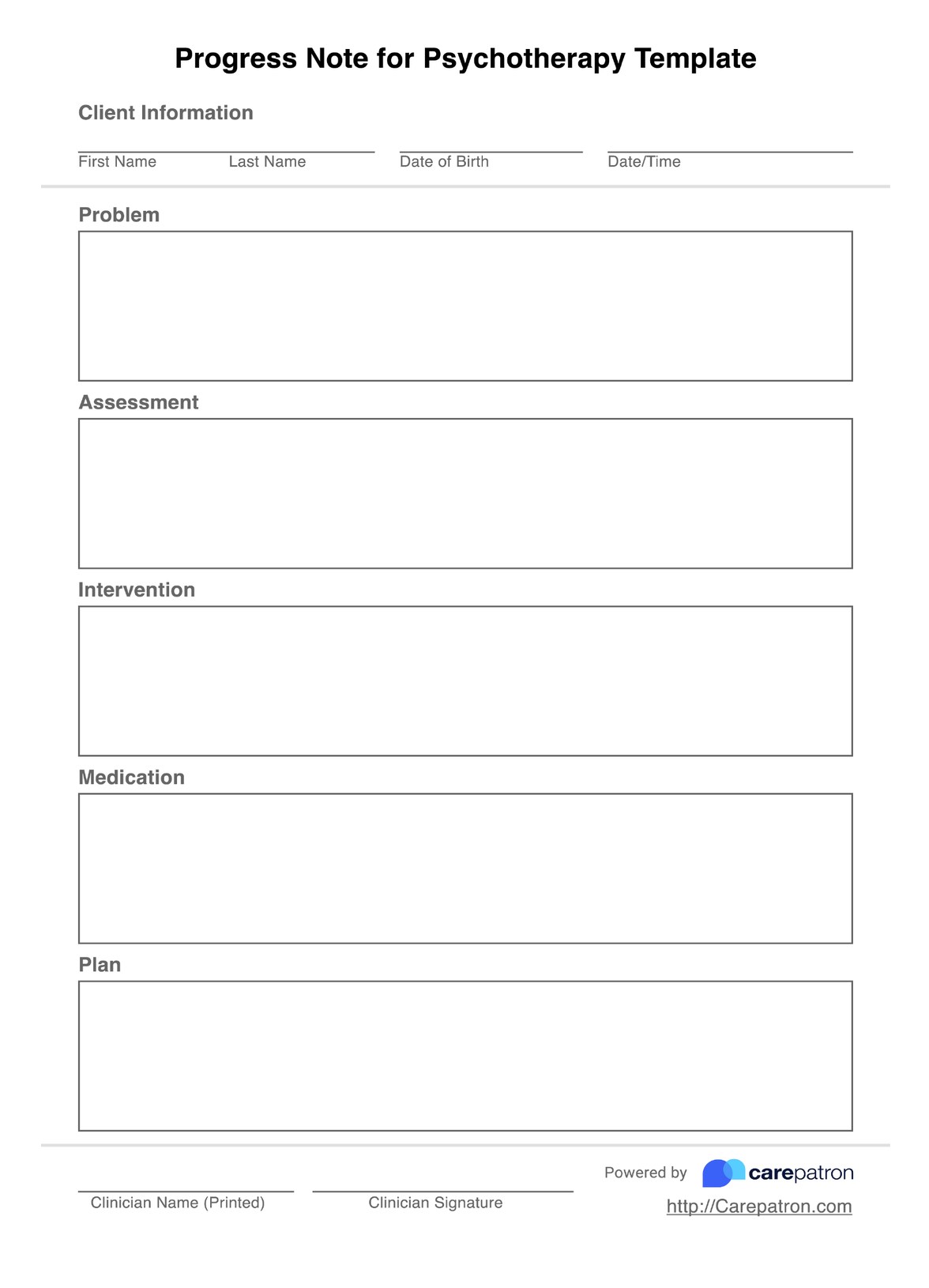
Our psychotherapy progress note template will streamline your workflow, create efficient notes faster, and enhance the quality of your care without compromise.

By Olivia Sayson on Jul 15, 2024.
Fact Checked by RJ Gumban.


Progress notes are detailed written records documenting a client's progress, treatment interventions, and overall care plan. They are a crucial communication tool among healthcare providers to ensure continuity of care and informed decision-making. Beyond that, they are also a measure of accountability and help practitioners become more organized in clinical work (Borders, 2014).
In the broader field of mental health, progress notes serve as a guide and roadmap through the client's treatment, including their symptoms, behaviors, and responses to various interventions. These progress notes help mental health professionals coordinate care and make informed decisions about the client's treatment plan.
Progress notes in mental health settings may also include information about medication management, risk assessments, and coordination with other healthcare providers.
Therapy progress notes document a client's journey through treatment. A therapy progress note typically includes the client's presenting concerns, relevant background information, therapeutic interventions employed, the client's responses and progress, and recommendations for future sessions (Tudor & Gledhill, 2022).
Counseling progress notes, on the other hand, record the client's concerns, goals, and progress throughout the counseling process. For instance, a counseling note template typically includes the topics discussed during sessions, the client's responses and insights, and the counselor's observations and interventions.
Progress notes in group therapy document the dynamics and interactions within the group and the progress of individual members. These notes typically include information about the group's focus, the topics discussed, the interventions used, and the responses and progress of individual members.
Group therapy notes help facilitators identify areas requiring further attention and ensure that the group's goals and objectives are met.
Progress notes are also used in various other mental health professions, such as social work, marriage and family therapy, and substance abuse treatment.